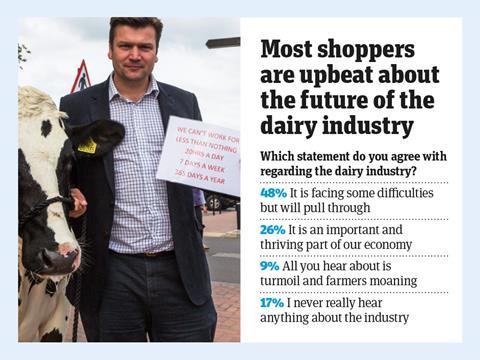
It’s been a tumultuous few months for dairy. With global dairy commodities markets in freefall, farmgate milk prices have plummeted, prompting widespread farmer protests.
Those protesting often claim they have the support of the British public and have urged retailers to put a stop to heavy-handed discounting of fresh milk. Yet despite the plight of dairy farmers making national headlines this summer, an exclusive poll for The Dairymen suggests the picture is more mixed.
The poll, by Harris Interactive of 2,032 consumers, reveals price remains the number one purchase factor, although nearly a quarter now claim they care most about whether farmers are getting a fair deal.
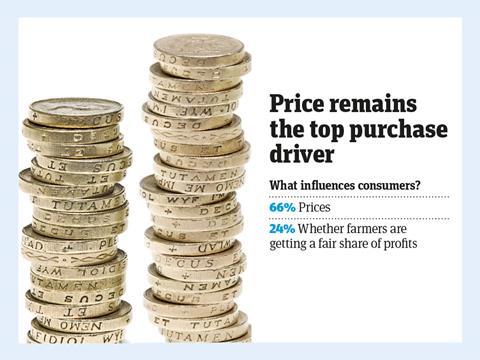
What is clear is the recent milk price drama has not gone unnoticed. According to the survey, 48% of consumers are aware the industry is “facing some difficulties” though most believe “it will pull through”. And 32% of consumers consider the UK to be a world leader in dairy - ahead of other fmcg sectors.
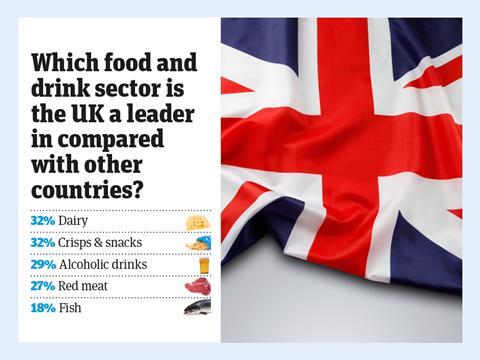
“Dairy is perceived as an industry where the UK leads,” says Lucia Juliano, head of fmcg & retail research at Harris Interactive. “It is clear the British public are huge supporters of the UK dairy industry and they do not want it to disappear.”
A quarter of 16 to 24-year-olds plan to cut down on dairy because of health reasons
Do you plan to reduce dairy consumption over the next 12 months for health reasons?
25% plan to eat less dairy because of my health
14% plan to eat more dairy because of my health
61% don’t plan to make any changes
But there are challenges. While most consumers (76%) don’t plan to change their dairy eating habits, a quarter of young shoppers aged 16 to 24 say they intend to cut back over the next 12 months because of health reasons.
It’s an early warning sign that the industry needs to ensure it gets its health messages right when targeting the next generation of shoppers.
Surprisingly given the positive news around fat and butter recently, olive oil and even margarine continue to perform better than butter in terms of health perceptions.
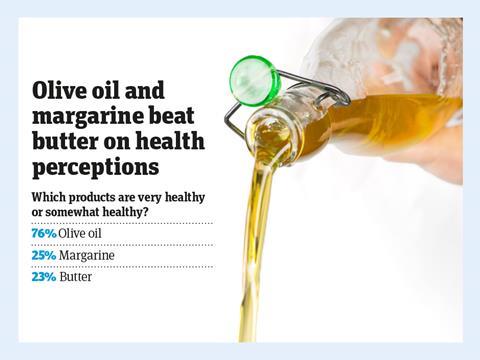
Just 4% describe butter as “very healthy” compared with 45% for olive oil. Cheddar, meanwhile, is seen as less healthy than red meat and milk alternatives such as soya or almond milk.
“With some of these products ranked almost as badly as crisps and confectionery, the dairy industry really will have its work cut out if it wishes to counter such deep-rooted consumer beliefs,” says Juliano. She notes that despite the war on sugar, it’s fat rather than sugar content that matters most to consumers when choosing dairy products.
This is obvious from consumer attitudes to sugar in yoghurt. Despite yoghurt being a frequent target of anti-sugar campaigners, 75% of consumers believe yoghurt is either “very healthy” or “somewhat healthy”.
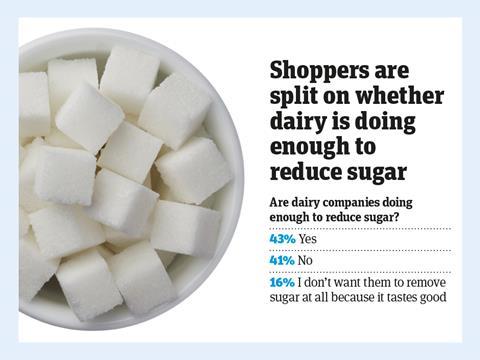
Overall, 43% say they are happy with sugar levels in dairy products - 16% even say specifically they don’t want sugar to be reduced “because it tastes good”. “Fat has a much bigger influence on buying behaviour than sugar across all groups,” says Juliano, warning dairy companies to pay close attention to this trend.
Public opinion is split on whether dairy companies are doing enough to reduce sugar in their products, she adds, but it’s clear the majority have a balanced view of yoghurt “and are happy to eat it as part of a balanced diet”.
Next generation
Away from health, recruitment could emerge as a major challenge. And this is not just about dairy farmers exiting the sector because of poor prices.
Most consumers have no idea what career opportunities there are in dairy
Would you encourage your kids to pursue a career in the dairy industry?
15% Absolutely, there are some great opportunities
22% No, it sounds like a nightmare
63% Don’t know what opportunities are available
Despite many consumers recognising dairy as an important part of the UK economy, our survey shows the dairy industry has a big job at hand to educate the public about career opportunities in the sector. Indeed, 22% would not encourage their children to go into dairy because “it sounds like a nightmare”.
“Food in general is often seen as less enticing compared with other industries that often benefit from positive PR and presence in the media,” says Juliano. So dairy is not alone - but it does have its work cut out to engage with young people starting out in their careers.







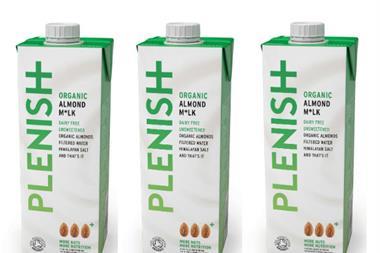
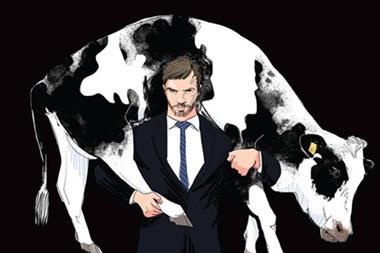
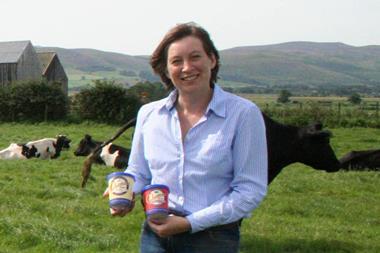
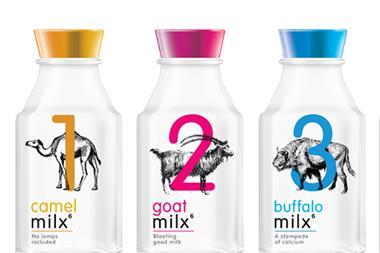








No comments yet